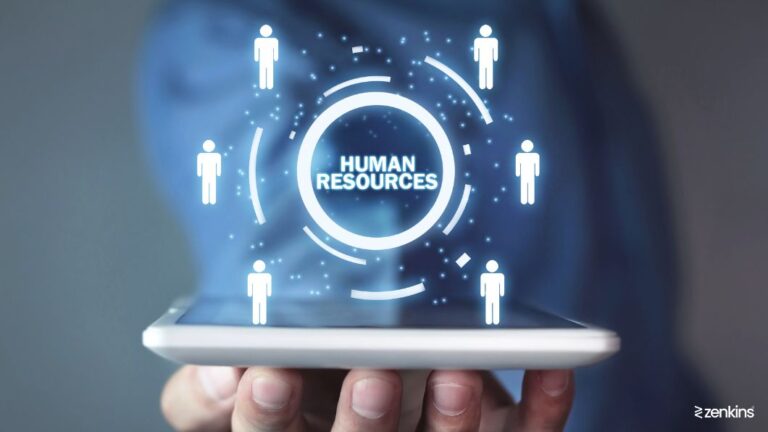Nonprofit Donor Management Software: A Case Study
Table of Contents
Nonprofit organizations rely heavily on the support of donors to fulfill their mission and make a positive impact in their communities. However, managing and cultivating relationships with donors can be a complex task. This is where nonprofit donor management software comes into play.
Introduction: Overview of nonprofit donor management software
What is nonprofit donor management software?
Nonprofit donor management software is like a superhero cape for organizations in the charitable sector. It’s a technology solution specifically designed to streamline and enhance the way nonprofits manage their relationships with donors. Think of it as an all-in-one tool that helps you keep track of donor information, communication history, and donation details, all in one centralized hub.
Importance of effective donor management for nonprofits
Effective donor management is vital for nonprofits for a multitude of reasons. Not only does it help build and maintain strong relationships with donors, but it also ensures efficient and organized operations. By effectively managing your donor relationships, you can increase donor retention, personalize communications, target fundraising efforts, and ultimately drive greater impact for your cause. Without it, you might find yourself drowning in spreadsheets and sticky notes, desperately trying to remember who donated what and when.
About the Client
Our client, a nonprofit organization, encountered challenges in donor communication, fundraising tracking, and donor relationship management. Recognizing the need for an advanced solution, they sought a Donor Management Software (DMS) based on .NET. The primary goal was to develop a comprehensive DMS that includes features for donor segmentation, online donation tracking, and personalized communication to strengthen relationships and improve fundraising outcomes.
Project Overview
The project aimed to develop a robust .NET-based Donor Management Software to address the client’s challenges. The primary objectives included providing tools for donor segmentation, online donation tracking, and personalized communication to enhance donor relationships and fundraising efforts.
The Challenges
- Ineffective Donor Communication: Challenges in effectively communicating with donors.
- Limited Fundraising Tracking: Difficulty in tracking and analyzing fundraising efforts.
- Donor Relationship Management: The need for a centralized system for efficient donor relationship management.
The Solution
Our team of experienced developers and project managers collaborated to design and implement a comprehensive .NET-based Donor Management Software. The solution included features for donor segmentation, online donation tracking, and personalized communication to enhance the efficiency of donor relationships and improve fundraising outcomes.
Key Features of the DMS
- Donor Segmentation: Tools for segmenting donors based on preferences and engagement.
- Online Donation Tracking: Seamless tracking and analysis of online donation campaigns.
- Personalized Communication: Automated and personalized communication tools for donor engagement.
- Centralized Donor Database: A centralized database for efficient donor relationship management.
Technologies Utilized
Development Stack: .NET, ASP.NET MVC
Database: SQL Server
Integration: Web API, REST APIs
Communication Tools: Email campaigns and in-app messaging for donor engagement.
The Outcome
The DMS was successfully deployed, resulting in significant improvements in donor communication, fundraising tracking, and donor relationship management. The donor segmentation features, online donation tracking capabilities, personalized communication tools, and centralized donor database contributed to more effective and targeted fundraising efforts.
Conclusion
Our team’s expertise in developing a tailored Donor Management Software using .NET technologies effectively addressed the client’s challenges. The implementation of donor segmentation features, online donation tracking, personalized communication tools, and a centralized donor database contributed to a successful transformation of the nonprofit organization’s donor management and fundraising practices.
Through this case study, we have witnessed the positive impact of implementing such software, from streamlining data management to improving fundraising efficiency and donor engagement. As nonprofits continue to navigate a rapidly changing landscape, the lessons learned and insights gained from this case study will serve as a valuable resource for organizations considering the adoption of donor management software. By leveraging technology and embracing innovation, nonprofits can enhance their ability to make a difference in the world and effectively steward the support of their donors.
FAQ
1. What is nonprofit donor management software?
Nonprofit donor management software is a specialized tool designed to help organizations effectively manage their donor relationships, track donations, and streamline fundraising efforts. It centralizes donor data, facilitates communication, and provides analytics and reporting capabilities to support strategic decision-making.
2. How does dMS benefit nonprofits?
Donor management software offers several benefits to nonprofits. It helps organizations maintain accurate donor records, track donation history, and segment donors for targeted communication. It streamlines fundraising campaigns, improves engagement with donors, and enhances overall efficiency in managing donor relationships. Additionally, it provides valuable insights through analytics, empowering organizations to make data-driven decisions and optimize their fundraising strategies.
3. Is donor management software suitable for organizations of all sizes?
Yes, donor management software can be beneficial for nonprofits of all sizes. While the specific features and scalability may vary, there are software solutions available to meet the needs of small grassroots organizations as well as large established nonprofits. It is important for organizations to assess their requirements and choose a software solution that aligns with their size, budget, and specific goals.
4. What are the key considerations when selecting donor management software?
When selecting donor management software, organizations should consider factors such as the software’s features and functionalities, ease of use, integration capabilities with existing systems, affordability, customer support, and scalability. It is crucial to evaluate the organization’s specific needs and goals and choose a software solution that aligns with those requirements and provides room for growth and adaptability in the future.




